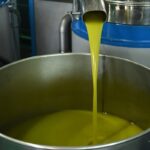
Recently, a sticky black ball, the size of a golf ball, washed up on a beach in Sydney, Australia, prompting authorities to close the beach.
According to Australia’s ABC News and The Guardian, seven beaches along the Sydney coastline were closed, starting with Coogee and Gordon’s Bay on Tuesday and later extending to Bondi, Tamarama, Bronte, Clovelly, and Maroubra by Thursday.

The mysterious black balls that prompted the closures were identified as hydrocarbon-based pollutants, specifically tar balls—oil clumps mixed with foreign substances. Authorities warned people to avoid touching or approaching these hazardous materials containing carcinogenic chemicals.

Tar balls, typically associated with oil drilling or spill incidents, form when the oil in the sea coagulates and mixes with other materials, eventually being shaped into balls by the motion of waves and currents. While occasional tar balls are found in places like the Gulf of Mexico, it’s unusual for such a large number and of uniform size to wash ashore simultaneously, leading experts to believe they may have originated from a nearby source.
Despite the speculation, the New South Wales Port Authority stated that no oil spills had been reported in the area. Cleanup efforts have begun to remove the tar balls from the beaches, but authorities estimate that about half of the debris remains in the water.
Dr. Sharon Hook, a senior researcher at Australia’s Commonwealth Scientific and Industrial Research Organisation (CSIRO), expressed concern that if the tar balls floated below the ocean’s surface or sunk to the seabed, they could affect marine life and the entire food chain.
Marine animals that ingest the tar could face digestive issues, and birds may lose their waterproofing ability if the tar sticks to their feathers.
The council announced that the beaches will remain closed until further notice and urged the public not to touch the substance while cleanup efforts are ongoing.















Most Commented